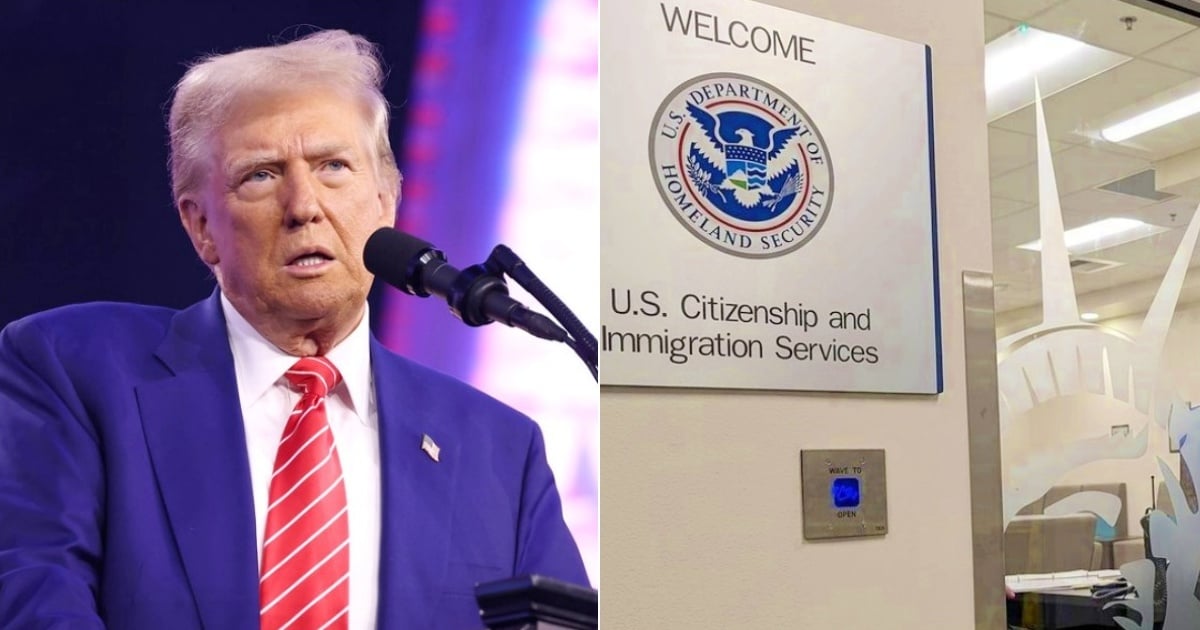President Donald Trump has escalated his immigration policy by introducing measures that could strip thousands of naturalized Americans of their citizenship. The Department of Justice (DOJ) has released new guidelines that formalize a strategy prioritizing civil denaturalization processes, reversing a long-standing moderate approach in this area.
The policy was outlined in a memo dated June 11, signed by Deputy Attorney General Brett A. Shumate, instructing the DOJ's Civil Division to "vigorously pursue denaturalization proceedings in all cases permitted by law and supported by evidence."
Targets of the New Policy
The memo specifies ten priority categories for citizenship revocation, including:
- Individuals linked to terrorism, espionage, or illegal technology trafficking.
- Those involved in war crimes, torture, or extrajudicial killings.
- Members of criminal gangs or drug trafficking networks.
- Convicted of violent, sexual offenses, or human trafficking.
- Fraudulent financial or medical claims against the state, such as PPP, Medicare, or Medicaid.
- Individuals who omitted criminal information during their naturalization process.
- Cases with pending criminal charges or referrals from federal prosecutors.
Moreover, the memo grants the Civil Division "discretion to process cases outside these categories as deemed appropriate."
Steve Lubet, Professor Emeritus at Northwestern University's Pritzker School of Law, criticized the vagueness of many categories, noting, "Many categories are so vague that they lack meaning. It's not even clear what they refer to."
Legal Implications and Concerns
Unlike criminal proceedings, civil procedures used in these cases do not guarantee the right to an attorney, raising significant concerns among civil rights advocates. This approach is deemed to facilitate and expedite revocations, as the burden of proof is substantially lower.
Cassandra Robertson, a law professor at Case Western Reserve University, explained to NPR, "The burden of proof the government must meet is lower, and it's much easier and faster to reach a conclusion in these cases."
The Elliott Duke Precedent
A recent example is Elliott Duke, a UK-born army veteran whose citizenship was revoked by a Louisiana judge on June 13. Duke was convicted in 2014 for distributing child sexual abuse material, a crime he concealed during his naturalization process. The DOJ considers this case emblematic of how the policy will be applied under the new guidelines.
DOJ's Strategic Focus Under Trump
Denaturalization is just one of five priorities the DOJ has been instructed to monitor under orders from President Trump and Attorney General Pam Bondi. The other four include:
- Judicial actions against sanctuary cities.
- Investigation of gender-affirming healthcare as potential healthcare fraud.
- Lawsuits against diversity, equity, and inclusion (DEI) programs.
- Expanding efforts against antisemitism.
These changes are transforming the traditional approach of the DOJ's Civil Rights Division. NPR reported that between January and May 2025, about 70% of the division's lawyers—approximately 250 professionals—resigned in response to this institutional shift.
Concerns About Unequal Citizenship
According to the Migration Policy Institute, nearly 25 million naturalized citizens currently reside in the United States. For many, citizenship no longer seems to be an inviolable guarantee. Sameera Hafiz from the Immigration Legal Resource Center stated, "It’s a way to, in some sense, try to create a second class of American citizens."
This policy poses the risk of creating a "two-tiered" citizenship system, where naturalized citizens are more vulnerable than those born in the country, especially if they have had any contact, even tangentially, with the penal system.
Immediate Impact Without Formal Timeline
While no formal timeline has been set for implementation, the measure is already underway. ICE has reported its thirteenth death in custody in the current fiscal year, highlighting an increasingly punitive immigration environment.
Additionally, on June 28, University of Virginia President Jim Ryan resigned following a federal investigation into the use of DEI programs in scholarships and admissions, reflecting the institutional reach of policies pushed by President Trump. Naturalization, once seen as a safe milestone in the American dream, has become a revocable status under the Trump administration's new directives.
Although officially focused on dangerous criminals or fraud cases, these measures open the door to broad and, according to experts, arbitrary interpretations. The message is clear: in Trump's America, citizenship is earned... and it can also be revoked.
FAQ About DOJ's Denaturalization Policy Under Trump
What are the main categories targeted for denaturalization?
The main categories include individuals linked to terrorism, espionage, illegal technology trafficking, war crimes, and members of criminal gangs or drug networks, among others.
What legal concerns have been raised about the new denaturalization process?
Concerns include the lack of a guaranteed right to an attorney and the lower burden of proof, which makes it easier and faster to revoke citizenship.
How has the DOJ's focus shifted under Trump's administration?
The DOJ has been instructed to focus on denaturalization, actions against sanctuary cities, healthcare fraud investigations, lawsuits against DEI programs, and combating antisemitism.
